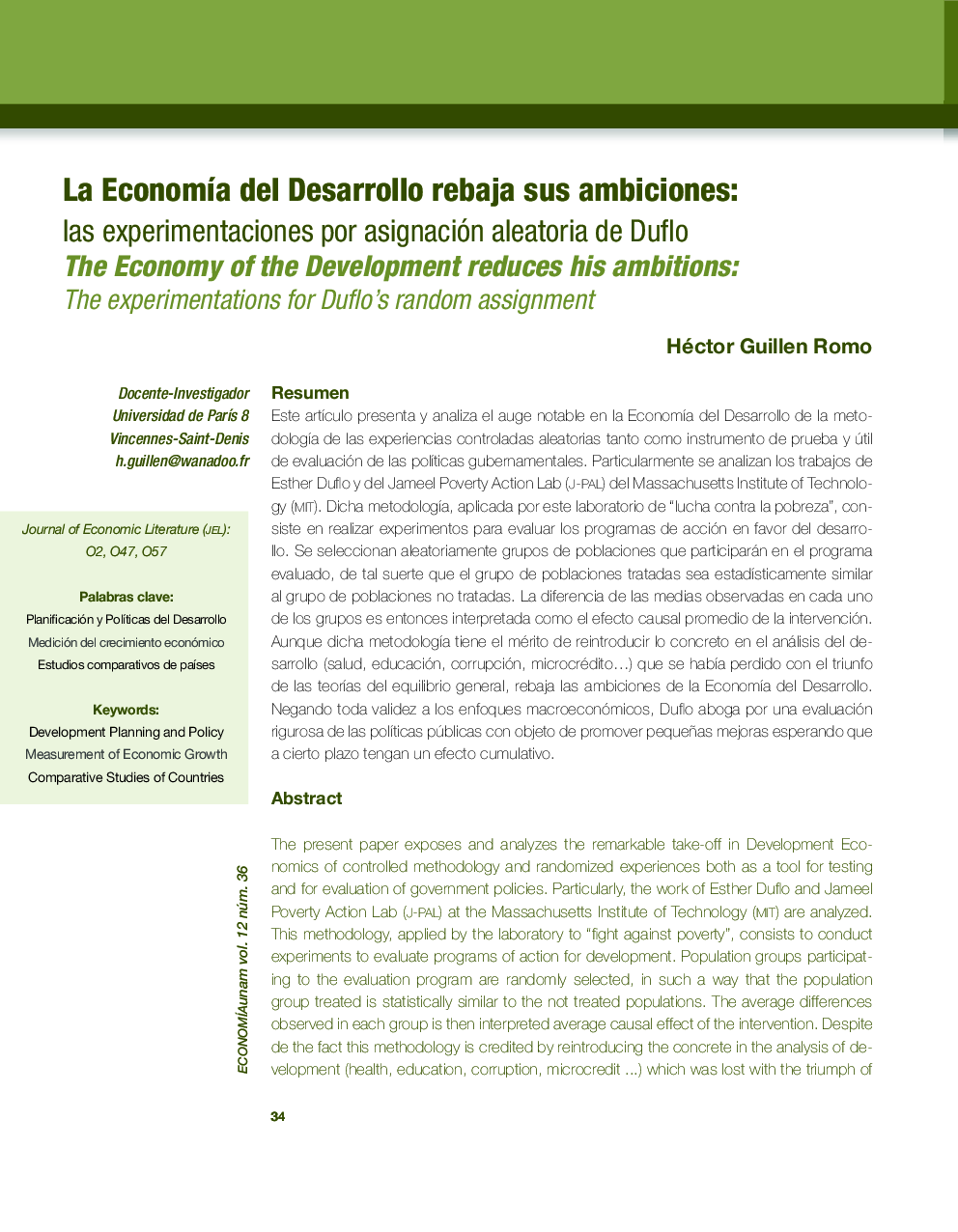| Article ID | Journal | Published Year | Pages | File Type |
|---|---|---|---|---|
| 7346024 | Economía UNAM | 2015 | 15 Pages |
Abstract
The present paper exposes and analyzes the remarkable take-off in Development Economics of controlled methodology and randomized experiences both as a tool for testing and for evaluation of government policies. Particularly, the work of Esther Duflo and Jameel Poverty Action Lab (j-pal) at the Massachusetts Institute of Technology (mit) are analyzed. This methodology, applied by the laboratory to “fight against poverty”, consists to conduct experiments to evaluate programs of action for development. Population groups participating to the evaluation program are randomly selected, in such a way that the population group treated is statistically similar to the not treated populations. The average differences observed in each group is then interpreted average causal effect of the intervention. Despite de the fact this methodology is credited by reintroducing the concrete in the analysis of development (health, education, corruption, microcredit ...) which was lost with the triumph of the theory of general equilibrium, it lower the ambitions of Development Economics. Denying any validity to macroeconomic approaches, Duflo pleads for a rigorous evaluation of public policies with the objective to promote small improvements hoping that in a certain time they would have a cumulative effect.
Keywords
Related Topics
Social Sciences and Humanities
Economics, Econometrics and Finance
Economics and Econometrics
Authors
Héctor Guillen Romo,
